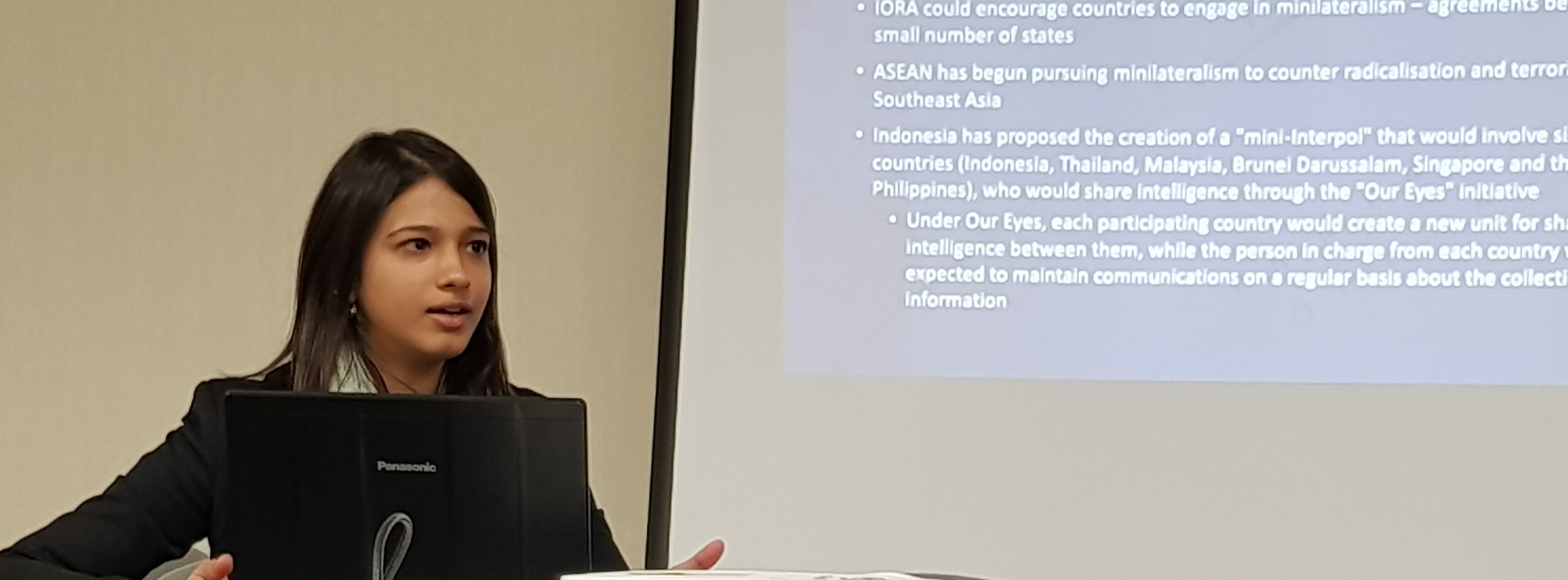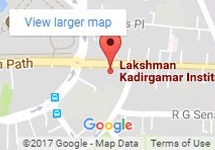
Reading Time: 2 min read
Anishka De Zylva, Research Associate at LKI, delivered a presentation on “Tackling Radicalisation in the Indian Ocean Region: Perspectives from Sri Lanka,” at the Tokyo University of Foreign Studies (TUFS) in Japan. She spoke at the invitation of Professor Isezaki Kenji, a faculty member of the Graduate School of Global Studies at TUFS.
Ms. De Zylva argued that the Indian Ocean region lacks a concerted effort to tackle radicalisation—an issue that has affected almost all Indian Ocean littoral states. She noted that given the quite nascent grouping of Indian Ocean states, through a regional organisation like the Indian Ocean Rim Association, efforts to tackle radicalisation have been relatively ad-hoc at the bilateral, trilateral and (especially) regional levels.
For a collaborative and more systematic effort, Ms. De Zylva proposed that the Indian Ocean Rim Association (IORA) could take the lead by (1) encouraging great power convergence on the issue of radicalisation (given that both China and India are interested in mitigating radicalisation); (2) strengthening IORA’s regional normative frameworks for tackling radicalisation; (3) stimulating minilateralism for specific issues related to radicalisation; (4) establishing a network for practitioners to share best practices in counter-radicalisation, de-radicalisation, and rehabilitation; (5) actively engaging the region’s large youthful population; (6) advocating for education models that are better suited to countering radicalisation; and (7) promoting non-traditional initiatives for tackling radicalisation, like urban planning for social cohesion.
Ms. De Zylva highlighted that small developing countries like Sri Lanka could play a role in facilitating a concerted effort to tackle radicalisation in the Indian Ocean by identifying these new areas for international engagement and promoting them within IORA. She also explained that states should view the issues of radicalisation as an opportunity to rapidly build collaborative arrangements with regional neighbours and other key partner countries.
This presentation was attended by university students, rehabilitation and de-radicalisation practitioners, representatives of think tanks, and professors from universities in Europe and South Asia.



